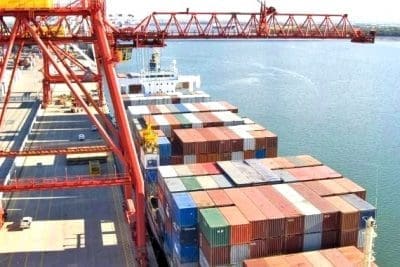DESPITE significant challenges from the global economic downturn and downward pressure on commodity prices, Australia’s agricultural sector is in a good position to weather the COVID-19 storm, Rabobank says in its April Agribusiness Monthly.
The report says the nation’s farm sector has a number of factors in its favour which will help cushion the negative economic impacts of the coronavirus pandemic in coming months. These include the low Australian dollar, local farmgate prices supported by limited Australian supply and positive seasonal expectations.
 Rabobank head of Food & Agribusiness Research Tim Hunt said while it would undoubtedly be a difficult season ahead, with a number of potential risks – primarily from COVID-19 impacts – Australia’s agricultural sector was overall positioned for a profitable year.
Rabobank head of Food & Agribusiness Research Tim Hunt said while it would undoubtedly be a difficult season ahead, with a number of potential risks – primarily from COVID-19 impacts – Australia’s agricultural sector was overall positioned for a profitable year.
“Global demand will be significantly impacted by the pandemic,” he said.
“While China appears to be in the early stages of recovery, the rest of the world is now falling ill. Global demand will likely weaken significantly in coming months as panic buying for food and groceries fades and the negative impacts of reduced incomes across most of the world come to the fore.”
With that, Rabo expects US dollar prices of most ag commodities to fall further in the second quarter of 2020, ending June 30.
“In global ag markets, supply typically fails to adjust quickly to negative demand shocks, resulting in the build-up of inventory. We expect this will see significant US-dollar price falls as a result, given the size of this demand shock,” Mr Hunt said.
Local positives
Importantly, the lower Australian dollar will provide some shelter from falling prices for Australian producers.
“The worse the pandemic gets, the lower the Australian dollar will fall as capital gets reinvested in lower risk financial markets like the United States and Japan,” he said.

Tim Hunt
“Significantly, the A$ is likely to be lower for longer than it was during the Global Financial Crisis, which was the last time we saw a large global economic shock.
“This will ensure the contraction in farmgate prices in local currency terms is less than seen on world markets.”
Local farmgate prices will also be supported by low local grain stocks as well as diminished cattle herd and sheep flock numbers after several years of drought.
“This is ensuring strong competition for product in the local market from processors downstream,” Mr Hunt said.
In addition, the report says, recent rainfall and the current weather outlook suggest Australian farmers will overall have a decent production season this year.
“After a wet February, more significant rainfall was recorded across the eastern states in March, including in many drought-affected regions,” Mr Hunt said.
On top of this, the next three months are likely to be wetter than average in the west and the south, according to Bureau of Meteorology forecasts.
Global market support
There are also global factors which will go some way towards mitigating the negative impacts of COVID-19 on demand, the report says.
This would keep the global animal protein market tighter than would have otherwise been the case.African Swine Fever was likely to further reduce Chinese pork production in 2020, Mr Hunt said.
In grains and oilseeds markets, the risk of supply disruption is creating a different dynamic. Traders are concerned about the potential for disruption to export shipments coming through key ports in Argentina and Brazil, and the threat of export restrictions in the Black Sea region.
Mr Hunt said this was creating a risk premium that would likely take some months to ease.
Downside risks
The report says the outlook for Australian agriculture does come with “downside risks on many fronts” as a result of COVID-19 disruption.
“Beyond demand and pricing, the sector faces material risks on several other fronts,” Mr Hunt said.
“Locally, these include availability of agri-chemicals and farm labour as well as the continuation of operation of packing houses and processing plants.”
Other market downside risks included the potential of re-infection in China, a global economic downturn in 2020 that is worse than the Global Financial Crisis, high infection rates in regional Australia which could impact the agricultural sector and the wildcard of an appreciation in the Australian currency.
Source: Rabobank

HAVE YOUR SAY